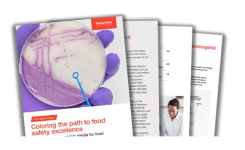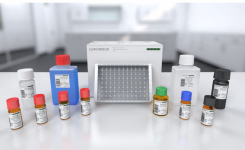| Accelerates Regulatory Approval Process to Use Celsis Rapid Detection System The US Food and Drug Administration (FDA) has accepted a Celsis Drug Master File (DMF) for Celsis AMPiScreen™™. This is the second Celsis DMF that has been accepted by the FDA in the last four months. The Celsis DMFs provide specific technical and regulatory information to the FDA which allows companies wanting to use the Celsis Rapid Detection system to obtain regulatory approvals more efficiently.
The Celsis Rapid Detection system was the first Rapid Microbiological Method (RMM) to be approved in a regulatory filing for microbial screening of pharmaceutical products in 1997. In addition, Celsis was the first provider to receive FDA acceptance of a DMF describing a RMM and is the only provider to have received FDA acceptance of two RMM DMFs
"Pharmaceutical and biopharmaceutical companies understand the benefits of faster product release with rapid microbial methods and are eager to implement rapid technology across a broad product range including raw materials, in-process and end products," said Diane Younker, Ph.D., Global Regulatory Affairs Manager of Celsis. "With the acceptance of two DMFs, including the most recent for AMPiScreen™, Celsis is demonstrating an ongoing commitment to its customers by helping to streamline implementation."
Many pharmaceutical companies have already submitted and received regulatory approval from the FDA, and other regulatory agencies, for using the Celsis Rapid Detection system. In fact, five of the top ten global pharmaceutical companies have received approval for its use in testing at least one of their products. With the FDA's acceptance of the Celsis DMFs, adoption of rapid methods by additional pharmaceutical companies will be more efficient.
The Celsis Rapid Detection system provides significant economic value through a reduction in working capital requirements and manufacturing cycle times, improved cash flow and an ability to meet just-in-time demands. Furthermore, earlier identification of contamination events facilitates faster corrective action, minimizing the economic impact of these events when they occur.
The Celsis DMFs share specific technical and regulatory information with the FDA, including details about reagent composition, claim support data and manufacturing details. The FDA will be able to evaluate pharmaceutical applications in conjunction with a Celsis DMF, when referenced by the customer.
|
















